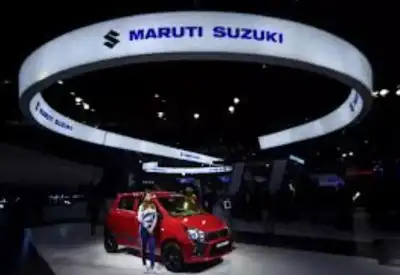ARTICLE AD BOX

Hansalpur: Maruti and its Japanese parent Suzuki Motor on Tuesday said they will invest Rs 70,000 crore in India over the next 5-6 years, but added that localising batteries for fully-electric cars remains a challenge in the absence of lithium-ion reserves.As the company rolled out its first fully-electric vehicle, the eVitara, global president T Suzuki said the car will be initially exported to Japan and Europe before making its way to India. At the rollout of the green car, in the presence of Prime Minister Narendra Modi, Suzuki said the company will be exporting the vehicle to over 100 countries, with India becoming the sole manufacturing base for the model."This Gujarat facility, serving customers across India and global markets, will shortly become one of the world's largest automobile manufacturing hubs, with a planned capacity of one million units.
Further, we chose this facility to manufacture the eVitara, our first battery electric, and make it as global production hub for this model. We will export this 'Made-in-India BEV' to over 100 countries, including Japan & Europe," he said.The company also started the production of the country's first lithium-ion battery and cell with electrode level localisation, that would be used for its hybrid vehicles. However, making bigger batteries for EVs remains a challenge, non-executive chairman R C Bhargava said.
This is also making it difficult for the company to plan proper schedules for launch and scale up of eVitara in India."Nobody is making EV battery cells in India. Production of battery cells is a very capital-intensive industry, and getting access to raw material (lithium ion) is a problem... this is one reason that deters people from making batteries in India. Or else you partner a Chinese company and give them a majority stake, and they assure you supplies."President Suzuki said the company has a focus on sustainability and green, and will launch cars across various clean technologies.



.png)
.png)
.png)
















 3 hours ago
3
3 hours ago
3








 English (US) ·
English (US) ·